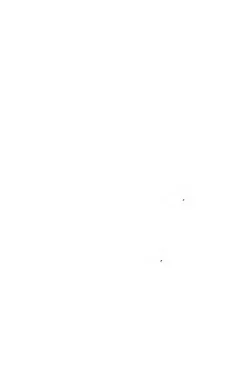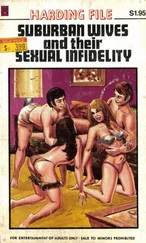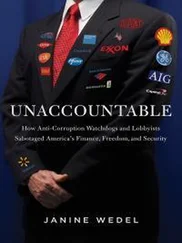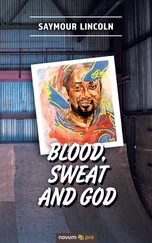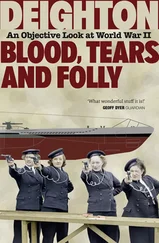Andrea Dworkin - Our Blood - Prophecies and Discourses on Sexual Politics
Здесь есть возможность читать онлайн «Andrea Dworkin - Our Blood - Prophecies and Discourses on Sexual Politics» весь текст электронной книги совершенно бесплатно (целиком полную версию без сокращений). В некоторых случаях можно слушать аудио, скачать через торрент в формате fb2 и присутствует краткое содержание. Жанр: Публицистика, на английском языке. Описание произведения, (предисловие) а так же отзывы посетителей доступны на портале библиотеки ЛибКат.
- Название:Our Blood: Prophecies and Discourses on Sexual Politics
- Автор:
- Жанр:
- Год:неизвестен
- ISBN:нет данных
- Рейтинг книги:3 / 5. Голосов: 1
-
Избранное:Добавить в избранное
- Отзывы:
-
Ваша оценка:
- 60
- 1
- 2
- 3
- 4
- 5
Our Blood: Prophecies and Discourses on Sexual Politics: краткое содержание, описание и аннотация
Предлагаем к чтению аннотацию, описание, краткое содержание или предисловие (зависит от того, что написал сам автор книги «Our Blood: Prophecies and Discourses on Sexual Politics»). Если вы не нашли необходимую информацию о книге — напишите в комментариях, мы постараемся отыскать её.
Our Blood: Prophecies and Discourses on Sexual Politics — читать онлайн бесплатно полную книгу (весь текст) целиком
Ниже представлен текст книги, разбитый по страницам. Система сохранения места последней прочитанной страницы, позволяет с удобством читать онлайн бесплатно книгу «Our Blood: Prophecies and Discourses on Sexual Politics», без необходимости каждый раз заново искать на чём Вы остановились. Поставьте закладку, и сможете в любой момент перейти на страницу, на которой закончили чтение.
Интервал:
Закладка:
first time in history, a rather happier resolution than one might
expect.
Do you remember that in Hemingway’s For Whom the
Bell Tolls Maria is asked about her lovemaking with Robert,
did the earth move? For me, too, in my life, the earth has
sometimes moved. The first time it moved I was ten. I was
going to Hebrew school, but it was closed, a day of mourning
for the six million slaughtered by the Nazis. So I went to see my
cousin who lived nearby. She was shaking, crying, screaming,
vomiting. She told me that it was April, and in April her
youngest sister had been killed in front of her, another sister’s
infant had died a terrible death, their heads had been shaved
— let me just say that she told me what had happened to her in
a Nazi concentration camp. She said that every April she remembered in nightmare and terror what had happened to her that month so many years before, and that every April she
shook, cried, screamed, and vomited. The earth moved for me
then.
The second time the earth moved for me was when I was
eighteen and spent four days in the Women’s House of Detention in New York City. I had been arrested in a demonstration


against the Indochina genocide. I spent four days and four
nights in the filth and terror of that jail. While there two doctors gave me a brutal internal examination. I hemorrhaged for fifteen days after that. The earth moved for me then.
The third time the earth moved for me was when I became
a feminist. It wasn’t on a particular day, or through one experience. It had to do with that afternoon when I was ten and my cousin put the grief of her life into my hands; it had to do
with that women’s jail, and three years of marriage that began
in friendship and ended in despair. It happened sometime after
I left my husband, when I was living in poverty and great
emotional distress. It happened slowly, little by little. A week
after I left my ex-husband I started my book, the book which is
now called Woman Hating. I wanted to find out what had
happened to me in my marriage and in the thousand and one
instances of daily life where it seemed I was being treated like
a subhuman. I felt that I was deeply masochistic, but that my
masochism was not personal— each woman I knew lived out
deep masochism. I wanted to find out why. I knew that I
hadn’t been taught that masochism by my father, and that my
mother had not been my immediate teacher. So I began in
what seemed the only apparent place—with Story of O, a
book that had moved me profoundly. From that beginning I
looked at other pornography, fairy tales, one thousand years
of Chinese footbinding, and the slaughter of nine million
witches. I learned something about the nature of the world
which had been hidden from me before— I saw a systematic
despisal of women that permeated every institution of society,
every cultural organ, every expression of human being. And I
saw that I was a woman, a person who met that systematic
despisal on every street comer, in every living room, in every
human interchange. Because I became a woman who knew
that she was a woman, that is, because I became a feminist, I
began to speak with women for the first time in my life, and
one of the women I began to speak with was my mother. I
came to her life through the long dark tunnel of my own. I


began to see who she was as I began to see the world that had
formed her. I came to her no longer pitying the poverty of her
intellect, but astounded by the quality of her intelligence. I
came to her no longer convinced of her stupidity and triviality, but astonished by the quality of her strength. I came to her, no longer self-righteous and superior, but as a sister, another woman whose life, but for the grace of a feminist father and the new common struggle of my feminist sisters, would
have repeated hers— and when I say “repeated hers” I mean,
been predetermined as hers was predetermined. I came to her,
no longer ashamed of what she lacked, but deeply proud of
what she had achieved— indeed, I came to recognize that my
mother was proud, strong, and honest. By the time I was
twenty-six I had seen enough of the world and its troubles to
know that pride, strength, and integrity were virtues to honor.
And because I addressed her in a new way she came to meet
me, and now, whatever our difficulties, and they are not so
many, she is my mother, and I am her daughter, and we are
sisters.
You asked me to talk about feminism and art, is there a
feminist art, and if so, what is it. For however long writers
have written, until today, there has been masculinist art— art
that serves men in a world made by men. That art has degraded women. It has, almost without exception, characterized us as maimed beings, impoverished sensibilities, trivial people with trivial concerns. It has, almost without exception,
been saturated with a misogyny so profound, a misogyny that
was in fact its world view, that almost all of us, until today,
have thought, that is what the world is, that is how women
are.
I ask myself, what did I learn from all those books I read as
I was growing up? Did I learn anything real or true about
women? Did I learn anything real or true about centuries of
women and what they lived? Did those books illuminate my
life, or life itself, in any useful, or profound, or generous, or


rich, or textured, or real way? I do not think so. I think that
that art, those books, would have robbed me of my life as the
world they served robbed my mother of hers.
Theodore Roethke, a great poet we are told, a poet of the
male condition I would insist, wrote:
Two of the charges most frequently levelled against poetry by
women are lack of range—in subject matter, in emotional tone—
and lack of a sense of humor. And one could, in individual instances among writers of real talent, add other aesthetic and moral shortcomings: the spinning-out; the embroidering of trivial themes; a concern with the mere surfaces of life—that special province of the feminine talent in prose—hiding from the real agonies of the spirit; refusing to face up to what existence is;
lyric or religious posturing; running between the boudoir and the
altar, stamping a tiny foot against God; or lapsing into a sententiousness that implies the author has re-invented integrity; carrying on excessively about Fate, about time; lamenting the lot of woman. . . and so on. 2
What characterizes masculinist art, and the men who make it,
Читать дальшеИнтервал:
Закладка:
Похожие книги на «Our Blood: Prophecies and Discourses on Sexual Politics»
Представляем Вашему вниманию похожие книги на «Our Blood: Prophecies and Discourses on Sexual Politics» списком для выбора. Мы отобрали схожую по названию и смыслу литературу в надежде предоставить читателям больше вариантов отыскать новые, интересные, ещё непрочитанные произведения.
Обсуждение, отзывы о книге «Our Blood: Prophecies and Discourses on Sexual Politics» и просто собственные мнения читателей. Оставьте ваши комментарии, напишите, что Вы думаете о произведении, его смысле или главных героях. Укажите что конкретно понравилось, а что нет, и почему Вы так считаете.
